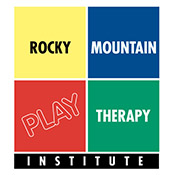Yellow Stream:
Certificate in Treatment of Trauma using Play Therapy Skills and Techniques
Special Interest & Advanced Practitioner
This certificate program can be taken as a stand-alone specialized training for Masters degree level mental health practitioners (or those in a Masters degree program) wishing to explore this play intervention/modality. Due to the focus on trauma and play-based techniques, previous training in play therapy is recommended.
The Certificate in Treatment of Trauma using Play Therapy Skills and Techniques is 21 contact hours - In Room or Live-On-line (minimum number of participants required for In Room) and 5.5 hours non-contact (reading and Mastery Test) (Total 26.5 hours) of specialized play therapy training that may be submitted to APT and/or CAPT for continuing education hours. Students will have three months to complete the required written case assignment.
This training may be used as continuing education for the purpose of CAPT, APT or BCPTA certification. APT, CAPT and BCPTA alone hold the right to accept or deny any continuing education training at their discretion.
Program Goals
The primary goal of this program is to deepen participants’ understanding of a play-based approach to the assessment and treatment of trauma. Participants will have the opportunity to engage in experiential play and expressive activities useful in the processing of situational, sexual, physical and emotional trauma. Participants will be exposed to various theories and conceptualization tools related to the treatment of trauma. Directive and non-directive approaches will be explored.
To access program dates see the training calendar for 2025
For full details please refer to the application form.
Who Should Attend?
This program is designed for those practitioners who wish to add to their play therapy training resume. All hours accumulated in the yellow stream may be submitted to Apt and/or CAPT for continuing education hours.
Entrance Requirements
Completed or attending a Masters degree in Counseling, Psychology or Clinical Social Work . Completion of the Foundations of Play Therapy: Green Stream program is recommended.
Recommended Readings
Goodyear-Brown, P. & Yasenik, L. (2024). Polyvagal power in the playroom. Routledge.
Goodyear-Brown, P. (2019). Trauma and play therapy: Helping children heal. Routledge.
Gil, E. (2006). Helping Abused and Traumatized Children: Integrating Directive and Non-directive Approaches, New York NY: The Guilford Press.
Sanders, M., & Thompson, G. (2022). Polyvagal theory and the developing child: Systems of care for strengthening kids, families, and communities. New York, NY: W.W. Norton and Company.
Program Outline
Blended Live Delivery (on-line live and face-to face)
Program:
- Introduction to the trauma spectrum
- The response to crisis pathways
- Children’s reactions to trauma
- Theoretical underpinnings - attachment theory, polyvagal theory, child development theory etc.
- The directiveness continuum of interventions
- Personal exercises
- Experiential exercises with case studies
- Treatment goals
Day 1:
- Post Traumatic Stress Disorder
- Acute Stress & Post Traumatic Stress Disorder reactions among children and adolescents: the Stress Response Profile
- Child development, trauma and memory
- Traumagenic states
- Case Conceptualization tool
- Identifying re-enactments and trauma fragments
- Dissociation
- Assessment & treatment goals
- Experiential exercises
- Video examples and slides
Day 2:
- Working with sexually abused children & adolescent: developmental considerations
- Personal exercise
- Trauma-focused play therapy
- Case example
- Practical/case conceptualization activities using play modalities of sandplay, dollhouse, puppets& expressive art
- Decision-making and tracking significant issues
- Recording observations, themes and process
Day 3:
- Introduction to TraumaPlay ™
- Mapping with children using Polyvagal Theory
- Working with physically and/or emotionally abused children and adolescent
- Issues for consideration
- Multicultural Orientation: Engaging in culturally informed trauma therapy
- Experiential exercises using play and expressive techniques: storytelling, bibliotherapy, art, mask-making, movement
- Case examples
Learning Objectives
To provide an overview of special issues related to the treatment of trauma.
Upon successful completion of the course each participant will be able to:
- Describe an introduction to trauma and efficacy of treatment in play therapy
- Demonstrate an ability to work a number of play-based approaches as related to the treatment of trauma in play therapy
- Describe how to intervene with traumatized children and adolescents in play therapy
- List the special considerations when working with the spectrum of trauma in the play therapy setting
- Demonstrate ways to provide feedback to parents and third parties in play therapy
- Demonstrate an understanding of when to be directive or non-directive when working with trauma cases in the play therapy setting
- Describe what it is to be culturally informed when working with traumatized children
Methods
- Experiential activities
- Videos & case examples
- Reading assignments
- Multiple choice mastery test
Awards
Awards Participants will receive a Certificate in Play-Based Treatment of Trauma from Rocky Mountain Play Therapy Institute. This certificate confirms the completion of 21 hours of specialized play therapy training approved by APT and CAPT. All training hours count toward certification or registration as a play therapist.
APT, CAPT, & BCPTA Continuing Education Credits will only be awarded to Mental Health Professionals. All credits must be approved by the appropriate governing body and cannot be guaranteed by RMPTI. This training meets the definition of APT’s Live-Webinar.
The certificate will be awarded on the basis of:
- Satisfactory attendance (no whole module may be missed unless there are extenuating circumstances. A makeup assignment may be requested depending on time missed).
- Satisfactory completion of a written case conceptualization.

